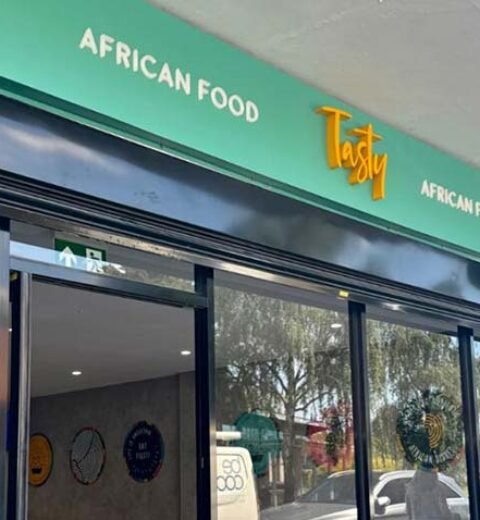If you’re a Nigerian looking to establish a business and achieve self-sponsorship in the UK, it’s essential to choose a business that aligns with your skills and experience. Not only will this increase your chances of success, but it will also help demonstrate your genuine intention to operate a legitimate business in the UK. Below are five business ideas to consider:
- Travel Agency
Starting a travel agency is a great business venture for self-sponsorship in the UK. You can offer personalised holiday services for clients globally, working from your UK base. If you have prior experience in the travel industry, it will be easier to show that your business is legitimate and that you have the necessary resources to operate.
Financial Implications:
- Initial Investment: Between £5,000 and £10,000 (for office setup, website development, marketing, and licensing).
- Ongoing Costs: Office space, staff salaries (if any), marketing, travel packages, insurance.
- Revenue Potential: Dependent on the scale of the business, with average annual turnover for small to medium agencies ranging from £50,000 to £200,000.
- Warehouse and Logistics Company
Setting up a warehouse and logistics business can be lucrative, particularly in the UK where the logistics industry is thriving. You’ll be responsible for transporting and storing goods for various businesses. If you have experience as a logistics coordinator or business analyst, you can apply your knowledge to establish and manage your business.
Financial Implications:
- Initial Investment: Between £20,000 and £50,000 (for warehouse rental, vehicles, staff, and equipment).
- Ongoing Costs: Warehouse rent, vehicle maintenance, insurance, fuel, and staff wages.
- Revenue Potential: Logistics businesses can generate anywhere between £100,000 and £1 million annually, depending on the client base and contracts secured.
- Clothing Company
If you have an interest in fashion or the apparel industry, setting up a clothing company is a profitable option. You can specialise in custom footwear and clothing for specific markets, such as the South Asian community in the UK. This market niche is growing, and with experience in design, retail, or e-commerce, you can build a solid business.
Financial Implications:
- Initial Investment: Around £10,000 to £20,000 (for inventory, e-commerce setup, branding, and marketing).
- Ongoing Costs: Inventory restocking, website hosting, marketing, and distribution.
- Revenue Potential: Clothing businesses can earn anywhere from £50,000 to over £500,000 annually, depending on the scale of the operation and target market.
- Construction Company
If you have experience in the construction sector, setting up a limited company and sponsoring yourself as the first employee can be a viable option. Whether it’s residential or commercial construction, there’s a steady demand for construction services in the UK. A solid business plan will be essential to demonstrate your capacity to manage the business effectively.
Financial Implications:
- Initial Investment: £15,000 to £30,000 (for tools, equipment, office space, and licensing).
- Ongoing Costs: Employee wages, materials, insurance, and vehicle costs.
- Revenue Potential: Construction companies can have substantial revenues, ranging from £100,000 to £2 million annually, depending on the type and number of projects undertaken.
- Technology Company
If you have a background in IT or technology consulting, setting up a technology company is an excellent option. With businesses increasingly relying on technology, there’s a growing demand for services like IT consulting, software development, and tech support. Your skills can be leveraged to offer solutions to both small businesses and large corporations.
Financial Implications:
- Initial Investment: Between £5,000 and £15,000 (for office space, website, and software development).
- Ongoing Costs: Software licenses, employee wages (if applicable), marketing, and utilities.
- Revenue Potential: Depending on the niche, technology companies can generate annual revenues from £50,000 to £500,000 or more.
Key Takeaway:
Choosing the right business is crucial to your success in the UK. Consider your transferable skills, qualifications, and experience before making a decision. For example, if you have a background in the restaurant industry, you could start a restaurant consultancy rather than opening a restaurant. If you’ve worked in IT, setting up an IT consulting business could be a perfect fit.
Additional Considerations for Self-Sponsorship:
- Visa and Sponsorship Requirements:
To sponsor yourself through your business in the UK, you’ll need to meet certain visa and sponsorship criteria. This includes demonstrating that you have enough funds to support yourself and your business and proving that your business is a viable and legitimate venture. You will likely need a Start-up visa or Innovator visa, depending on the nature of your business. - Business Plan:
A detailed business plan is critical to your self-sponsorship application. It should outline your business’s objectives, market research, financial projections, and how you plan to operate within the UK. This is often a requirement for securing the appropriate visa and proving your intent to run a legitimate business. - Professional Advice:
It’s advisable to consult with an immigration lawyer or business consultant familiar with UK sponsorship laws to ensure you meet all the requirements for self-sponsorship. They can help you navigate the legal and financial aspects of setting up your business.
Conclusion:
Starting a business in the UK can be an excellent path to self-sponsorship, provided you choose a business that aligns with your skills and experience. With the right approach and planning, you can successfully navigate the financial and legal requirements to establish a thriving business. Whether it’s in travel, logistics, fashion, construction, or technology, there are plenty of opportunities for Nigerian entrepreneurs in the UK.
Join Our WhatsApp Channel
Stay updated on the latest UK news, including education, health, job openings, and more for those living in the UK!
Join here: Naija UK Channel
Also, follow us on our social media channels for the latest updates and discussions:
- Twitter: @NaijaUKConnect
- Facebook: Naija UK Connect
- Instagram: @naijaukconnect




